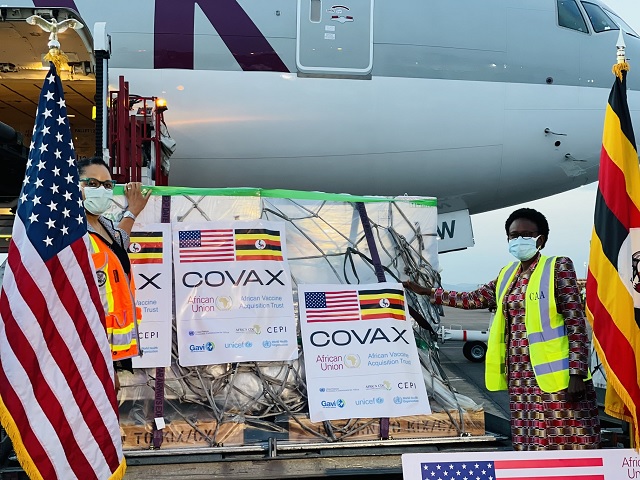
Kampala, Uganda | THE INDEPENDENT | GAVI, the vaccines alliance is urging countries to order for COVID-19 vaccines saying that they have enough stocks to cover each of their needs.
The development comes only a year after wide concerns of hoarding birthed what was widely referred to as vaccine nationalism.
GAVI’s CEO Seth Berkley told journalists in a news conference that they have so far delivered up to 1.4billion doses of vaccines to countries in need, have up to 500million doses allocated and enough in stock for even those that want a specific choice of vaccine.
World Health Organization (WHO) figures show that global coverage of vaccines currently stands at 59% but the biggest percentage is contributed by wealthy nations who early last year rushed, purchased and inoculated most of their citizens leaving very little for developing countries that only started catching up when agencies like GAVI started a campaign asking individual countries that had over-supply to share.
As a result of this, Berkley says more than 40% of people in low developing countries have been vaccinated, although he notes that many countries couldn’t sustain wide vaccination campaigns because they lack capacity in terms of both vaccinators and other logistics such as storage and transportation to where they are needed.
Because of this, he says they have had to raise new money from donors to help with such logistics and that earlier this month, they got $600million which will help set up the needed infrastructure to inoculate in thirty four countries that have the lowest rates of vaccination.
Meanwhile in some countries, the problem is not just vaccine availability, but only a few people are turning up for vaccination due to the fact that infection rates have generally decreased together with a slowdown in communication campaigns.
In Uganda for instance, though they continue to receive vaccine donations and await new deliveries from GAVI, only 15million people have a received a dose of COVID-19 vaccine whereby of that, only 10million are fully vaccinated.
In order to have as many people as possible get vaccinated, Health Minister Dr. Jane Ruth Aceng says they decided to carry out mass campaigns to cater for both those taking initial doses and booster doses.
“We recently concluded phase 2 of the accelerated mass COVID-19 vaccination across the country which was to ensure that all persons of 18 years and above get their second dose of vaccines,” said Dr. Aceng.
This mass exercise helped Uganda make some strides but still only less than 50% of the 22million people initially targeted have been immunized and yet the country has so far received more than 44million doses of the vaccine which would be enough to inoculate all.
Instead, there have been worries of vaccines expiring in stores since some of the donations came in nearing end of shelf-life.
This trend worries experts that slow roll-out of jabs will give the coronavirus a chance to mutate again and potentially create new variants that might be more aggressive.
*****
URN
 The Independent Uganda: You get the Truth we Pay the Price
The Independent Uganda: You get the Truth we Pay the Price





